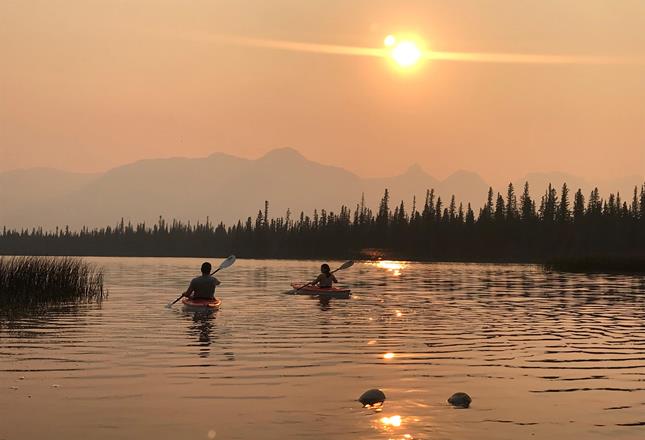
Yesterday was World Mental Health day and I’ve been asked to write a blog about how sport and recreation has helped me to support my own mental health.
Most people are aware of the general benefits of sport and recreation and specifically how the endorphin rush that comes from physical exercise can have a positive effect on the brain, putting you in a happy place.?
From my own experience there’s a lot more to it, and the mental wellbeing benefits from other aspects of sport and recreation are just as applicable for those who struggle with the physicality or motivation to achieve that endorphin rush.?
In 2011 injury affected my ability to ride my bike, I fell into a dark place. My lifestyle, my purpose and my focus had been ripped from me. It was only when I started volunteering in sport that I began to feel better.
Volunteering was a way to regain my involvement in a community. I once again felt like I belonged somewhere and that my skills and presence were appreciated and valued. This had a huge impact on my self-confidence and self-worth.
It also put me in the right place to see new opportunities and gave me the confidence to try new activities that I would never have taken up from my dark place. For me, that led to trying paracanoe and to imagining I could aim for Rio!?
Then comes the learning of a new activity. I find the mental focus required for learning is amazingly therapeutic, particularly as it can draw your attention away from the muddle of anxiety and negative thoughts you are caught in.
I found that while I concentrated hard on mastering kayaking, I felt good. The strange thing was that even after the training sessions had finished, my mind stayed in that peaceful place.
Unlike lots of people who turn to sport I don’t naturally crave the endorphin buzz from pushing hard.
When I’m feeling low or fragile the last thing I want to do is get off the couch let alone exercise because it takes so much extra energy, but I have discovered easier ways to persuade myself to get going and improve my mental wellbeing.
Just ‘being’ in nature makes me feel better by drawing my attention into the present moment. I always loved kayaking training sessions because we paddled on a beautiful lake where I could watch the seasons evolve, the trees change, and the cygnets venture out for the first time.
Yes, I was also working hard, and must have had an endorphin rush, but that wasn’t my primary aim. I can also slip easily into my happy place from taking a gentle walk in the woods or, as I am now, riding 3,000 miles on the back of a tandem through golden Aspen forest’s in the Rockies, along the Continental Divide.?
Exercise has had a huge positive impact on my mental health, and I believe that there’s a sport or activity out there for everyone.
I also firmly believe that recreation of all forms provides mental wellbeing with or without the physical effort; from being valued as a volunteer, to the mental distraction of learning new skills, or from simply getting out and being in nature.
The Sport and Recreation Alliance is delighted to confirm former Rugby Football League (RFL) CEO, Ralph Rimmer OBE, as the Chair and Jack Baker as Deputy Chair of the new NGB Coalition.
Read moreIt is with immense sadness that the Sport and Recreation Alliance learned of Andy Sutch’s passing last week, and we send our deepest condolences to Andy’s family and friends.
Read moreThis afternoon, the Chancellor delivered her Budget speech to Parliament, outlining decisions on tax and spending.
Read moreJoining the Sport and Recreation Alliance is pretty simple, but worthwhile!
Register now